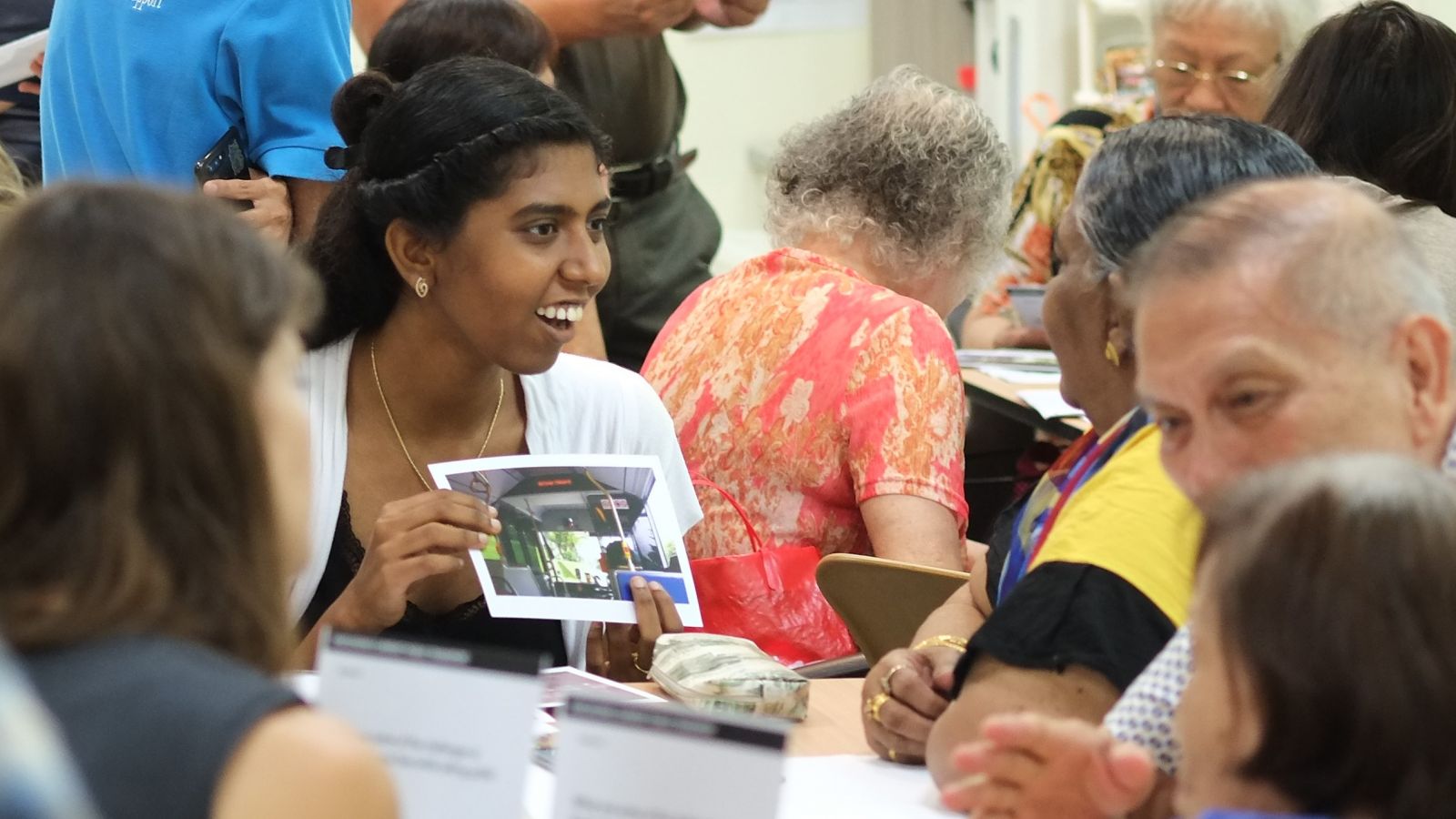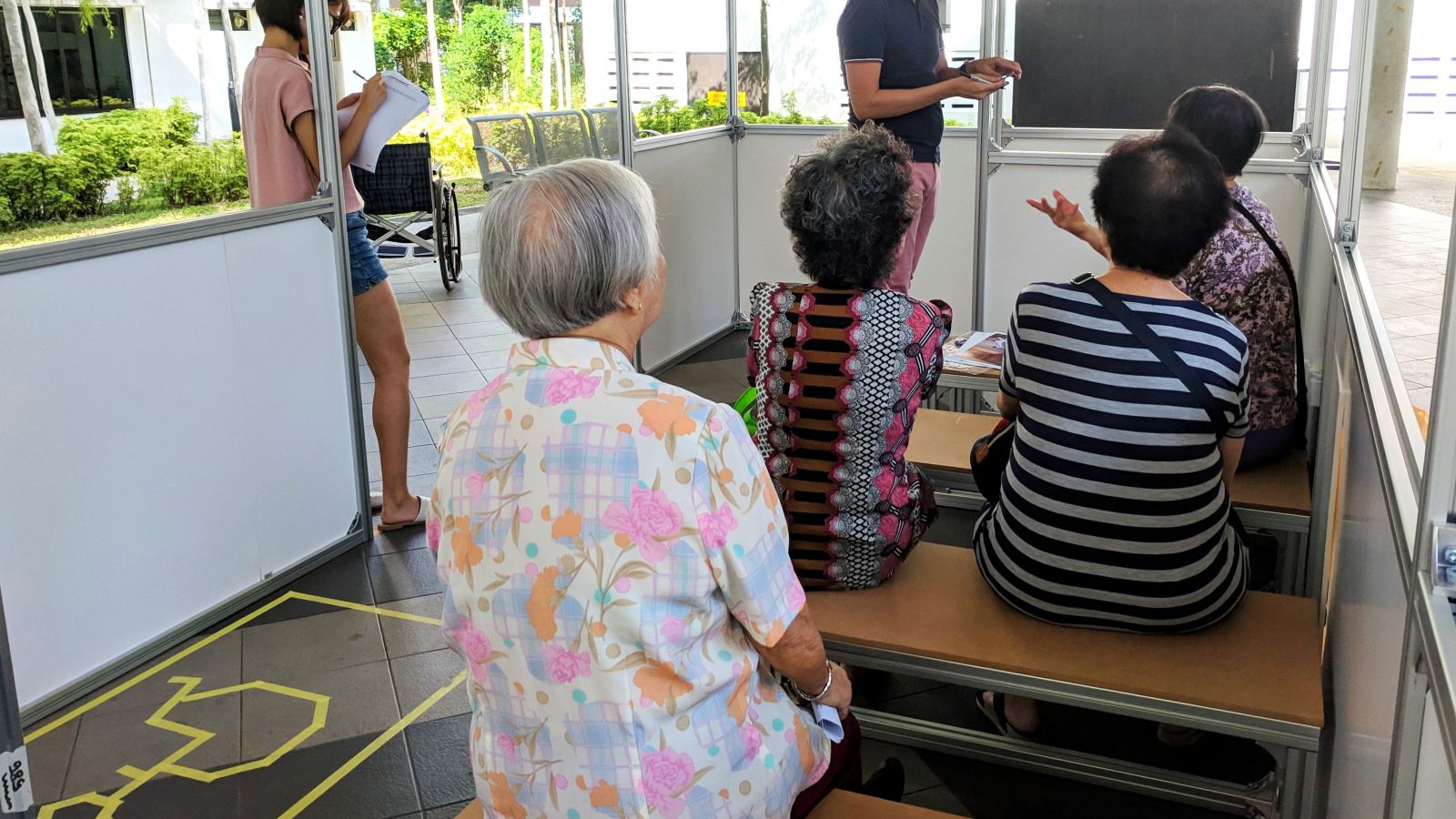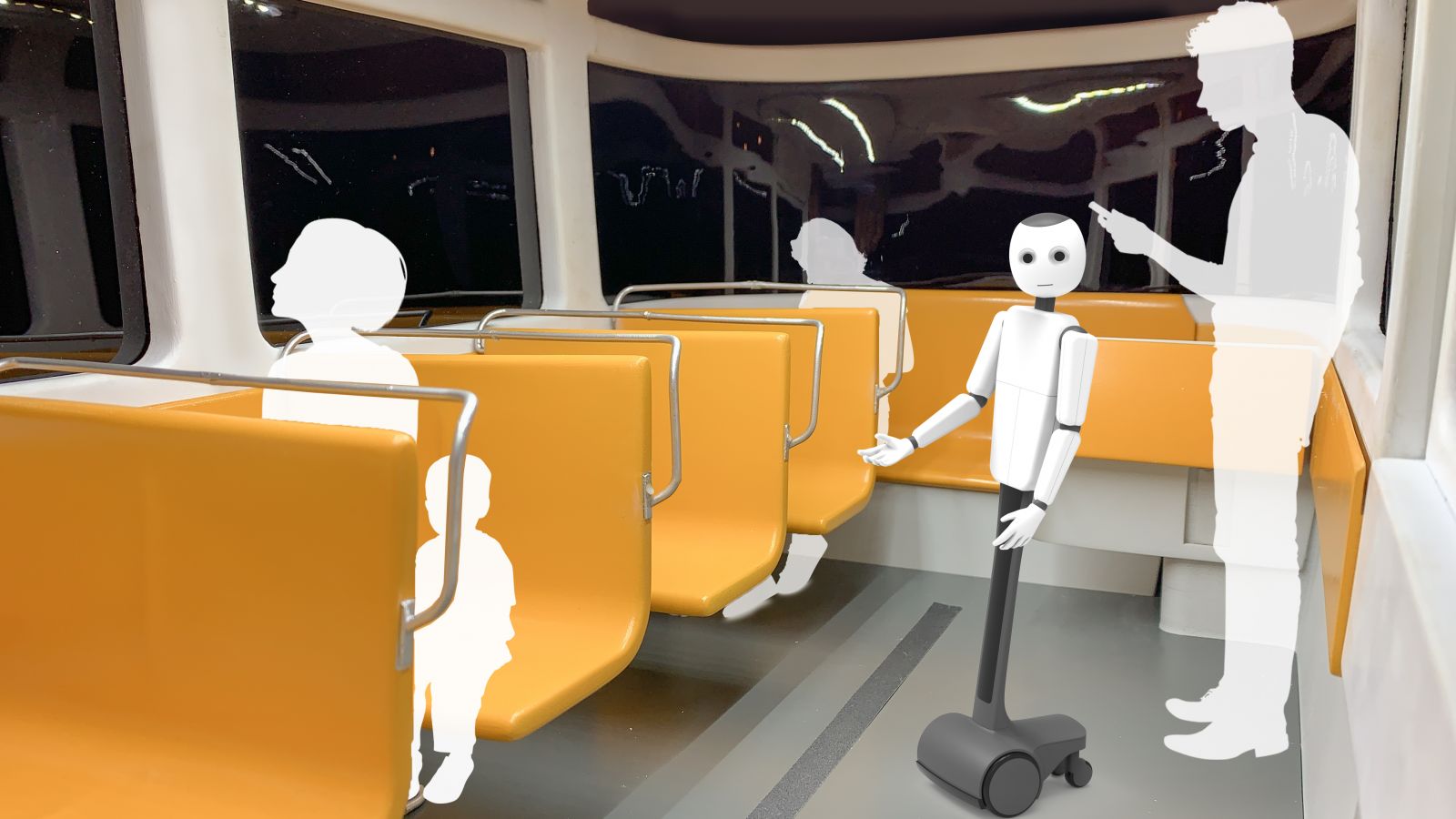- AquaCycle
- Proteins4Singapore
- Singapore's Pathway to Carbon Neutrality
- CellFACE
- LightSPAN
- Computational Modelling Group
- Energy and Power Systems Group
- SITEM - Singapore Integrated Transport and Energy Model
- Past Projects
Emotional Design for Future Mobility

The digitalisation and automation of mobility services will give rise to new and unique challenges regarding human-machine interaction. Since a majority of Singapore’s population rely on public transport for their daily travel needs, the introduction of autonomous vehicles (AVs) will impact mobility experiences. This project investigates how human-machine interfaces (HMI) can be designed with emotion to foster trust in AVs. A design intervention is proposed in the form of a DART Companion, which seeks to fulfil the role vacated by the human driver.
Participatory design workshops were conducted with seniors to understand their mobility experiences and user expectations for future autonomous bus services. Participants shared their perspectives in group interviews and brainstormed HMI ideas using scaled and 1:1 mock-ups combined with various role-playing scenarios.

In a second study, a list of HMI attributes was consolidated for a survey to determine user preferences for must-haves and ideal-to-haves. Results led to the creation of two extreme versions of a Virtual and Robot Companion, each providing different types of assistance. A follow-up study seeks to establish links between these functional layers and users’ satisfaction levels and emotional responses. The methodology presents subjects with the two Companion concepts in three different mobility scenarios in a slideshow-based stimulus while collecting their subjective evaluations. Further work for this project is ongoing.

Contact person: penny.kong@tum-create.edu.sg

